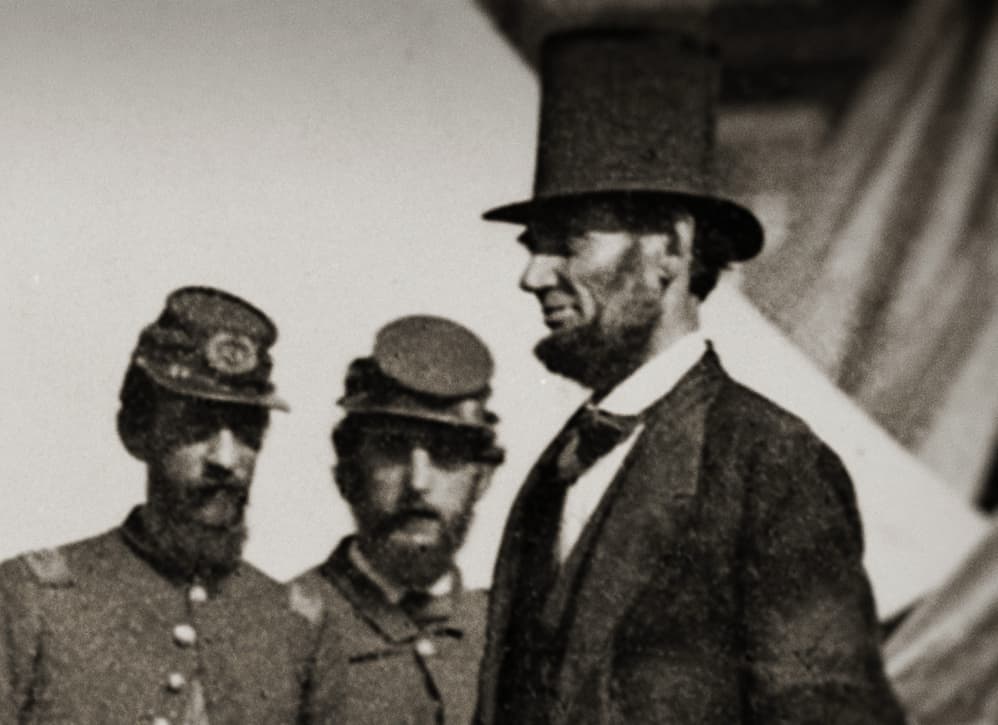‘Lincoln’s Dilemma’ Turns Out To Be Too Timid To Praise the 16th President
A lengthy, muddled, and nuanced attempt to explore the biography of President Lincoln.

“Lincoln’s Dilemma,” a new documentary series on Apple TV+, grapples with how to weigh the 16th president’s legacy through the lens of contemporary touchstones like the “1619 Project,” #BlackLivesMatter, and post-January 6 anxiety.
It is a lengthy, muddled, and nuanced attempt to explore the biography of President Lincoln. It succeeds when it can lean on hard facts, but falls short when it starts trying to prescribe lessons of history for modern issues.
Napoleon once said, “What is history, but a fable agreed upon?” Works of history are best taken with a grain of salt. Historians carry their agendas into their works and a viewer must be cautious of those agendas, lest we forgot Herodotus was both the father of history and the father of lies.
This is more true in the so-called post-truth world, as the Oxford English Dictionary described post-2016 politics, where narratives and agendas give people power through their ability to frame history. The New York Times’s “1619 Project” has presented one such narrative. It teaches that it is impossible to understand American history without centering it on slavery. It’s at the point where teaching alternatives earn one an accusation of denying history.
“Lincoln’s Dilemma” doesn’t escape these realities. It doesn’t directly quote “1619,” but it is written with the same priorities. It has an agenda and it suffers from an inability to resolve the problems it explores. It wants Lincoln to be a unifying force for modern politics but it is afraid to make him into what it calls a “white savior.”
The series starts with a prologue about the division and purportedly anti-democratic sentiments raised — in the documentary’s telling — by President Trump supporters after the 2020 election.
“We’ve been in a crisis in this country. We’ve witnessed unprecedented levels of resistance to democracy. And it harkens to the mid-19th century when political division threatened the future of this country,” a NYU Law professor, Brystan Stevenson, says.
“Lincoln’s Dilemma” covers a broad swath of history: Lincoln’s opinions on slavery, how political pressure affected his decisions, his relationship with Frederick Douglass, the major campaigns of the Civil War, the treatment of slaves, and the contributions of black soldiers during the war.
The picture it paints covers the four years of the war and explores Lincoln’s thought processes as he progresses from a lukewarm anti-slavery advocate to an enmancipator, acknowledging the real political costs and benefits resulting from his decisions.
It does a serviceable job paying credit where it’s due, while also condemning what it describes as Lincoln’s failures. These include not believing black people to be equals and weighing a proposal to deport slaves to Liberia. The documentary’s conclusions become weaker and more radical as it focuses on the modern implications of his legacy.
The series celebrates the destruction of confederate statues to make the nation more welcoming to non-white Americans, but it doesn’t stop there. It also gives merit to the destruction of statues of Lincoln. It depicts the December 2020 removal of a Boston statue depicting Lincoln reaching his hand out to a freed slave to help him up, a symbol of emancipation. Boston activist Tory Bullock lobbied for the removal of the statue, and succeeded after an online petition earned more than 13,000 signatures.
Protesters in the documentary footage can be seen yelling that, “Lincoln was not an abolitionist. He does not deserve this platform,” and, “You can’t trust this country to tell the truth about what happens to black people, and of course a country that does that creates these types of symbols.”
“He did not start his presidency to be the great emancipator,” says a historian at Wellesley College, Kellie Carter Jackson. “He wanted to be the great unifier, the person who brought the country together again.”
“Lincoln’s Dilemma” presents the president as an empathetic but flawed man. In the series’s telling, he never fully lived up to his title of the Great Emancipator even if he listened to the stories of former slaves and freed them.
The series has no solutions. It defends the impulse to tear Lincoln down. It dasn’t indulge the desire to glorify Lincoln, to hold him up as a symbol of national unity.

